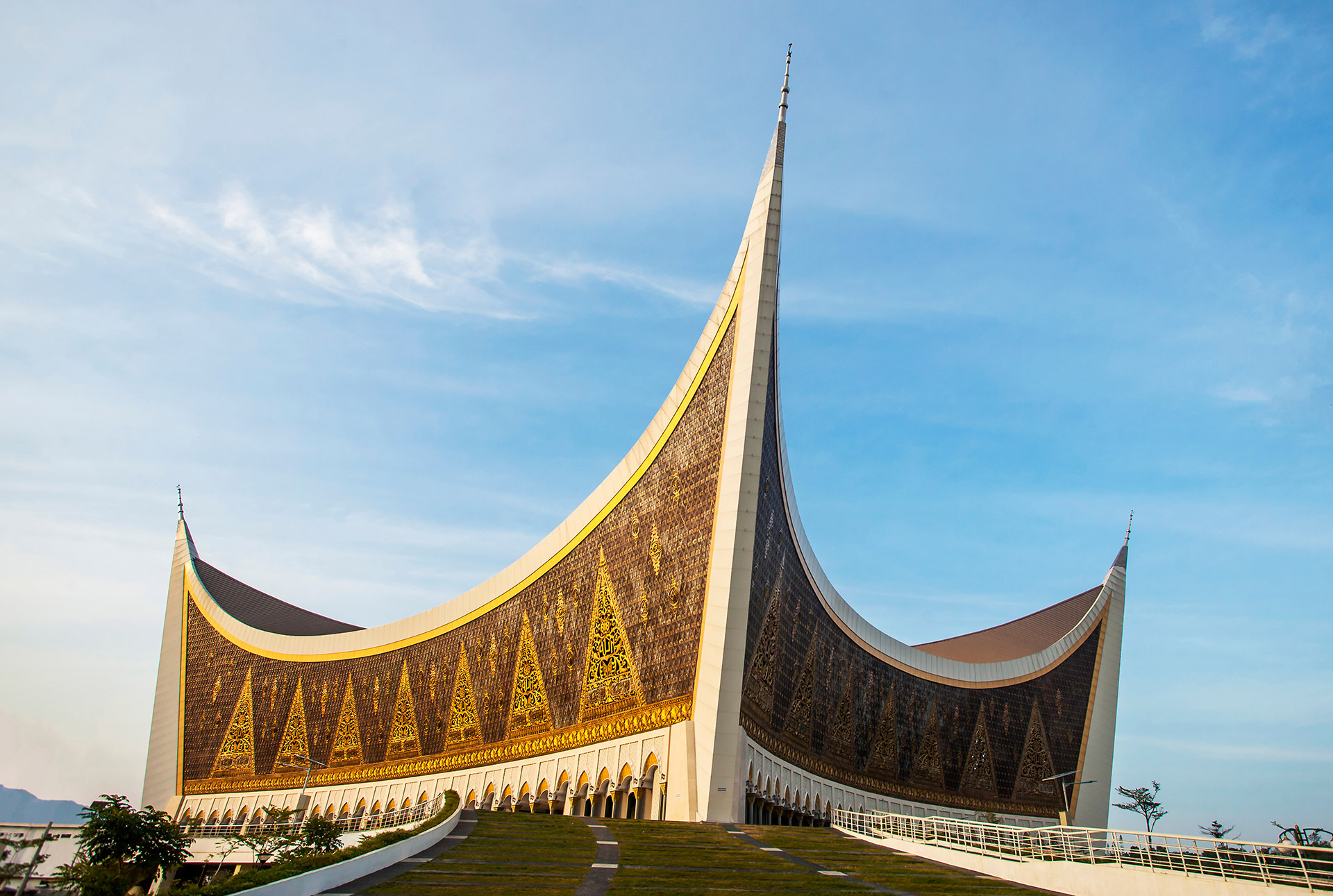Little did Elianu Hia know that a video he posted on Facebook in early 2021 would shape Indonesian policy and turn his life upside down.
A Christian in a Muslim-majority nation, Mr. Hia objected to vocational school authorities in the West Sumatran city of Padang obliging his daughter to wear a hijab. In a secretly taped video, his daughter’s teacher insisted that wearing a hijab was mandatory. The teacher demanded that Mr. Hia put his daughter’s refusal in writing, which would have been a first step to expelling her. The video went viral.
In response, Indonesian Religious Affairs Minister Yaqut Cholil Qoumas and his home affairs and education counterparts threatened to sanction state schools seeking to impose religious garb in violation of government rules and regulations. “Religions do not promote conflict, neither do they justify acting unfairly against those who are different,” said Mr. Qoumas, who is also a leader of Nahdlatul Ulama, the world’s largest Muslim civil society movement and foremost advocate of theological reform in line with the Universal Declaration of Human Rights.
The school complied. Over the last two years, the number of Christian girls shedding the hijab has grown. But at the same time, Mr. Hia received threatening messages on Facebook and WhatsApp. “I lost count,” he told Human Rights Watch. “Hundreds of them.”
Mr. Hia’s air conditioning business started to lose customers. “Some customers asked me whether I was the one who was protesting the mandatory hijab rule. And they stopped requesting my services,” Mr.Hia said. Struggling to repay a bank loan, he dismissed five employees and sold his truck and his minibus. Almost two years later, Mr. Hia and his wife decided to sell their house while waiting for their daughter to finish high school. “I cannot earn enough money now. We have to move out of West Sumatra,” he said.
Support for Political Islam on the Upswing
Mr. Hia’s experience tells the story of see-saw swings in the Muslim world between trends towards increased religious individuality, a more personal understanding of religion, and skepticism towards religious and temporal authority on the one end, and support for greater public adherence to religious norms and often state-aligned clerics on the other.
These swings may influence the public standing of Islamic scholars who align themselves with autocratic rulers like Saudi Crown Prince Mohammed bin Salman who has subjugated the kingdom’s religious establishment to his will and pushed ahead with far-reaching social reforms anchored not in civil but in religious law.
Potentially, the swings also suggest that calls by Nahdlatul Ulama for reform of Islamic law in Indonesia, the world’s largest Muslim-majority country and a democracy, may encounter greater resistance beyond the group’s Javan stronghold in the archipelago state.
Furthermore, the swings point to a possible comeback of political Islam, a decade after groups like the Muslim Brotherhood appeared to be down and out due to a Saudi and Emirati-backed public backlash that had rolled back their initial success in the wake of the 2011 Arab popular revolts.
Those revolts toppled the autocratic leaders of Egypt, Tunisia, Yemen, and Libya. However, the Brotherhood suffered its most significant setback just two years later as a military coup in Egypt removed Mohammed Morsi, a Muslim Brother and the country’s first and only democratically elected president, from office. The coup and subsequent brutal repression sent the Brotherhood into exile, where it has lingered ever since.
The story appears now to be changing, however. “Results from nationally representative public opinion surveys…strongly suggest that political Islam is making a comeback. In most countries surveyed, young and old citizens demonstrate a clear preference for giving religion a greater role in politics. This is the first time that support for political Islam has increased meaningfully…since the Arab Uprisings of 2011,” said Michael Robbins, director and co-principal investigator of Arab Barometer, a group that regularly surveys public opinion in the Middle East.
Mr. Hia’s experience is one more piece of anecdotal evidence of a revival of conservatism also reflected in the polling of Mr. Robbins and others, despite contradictory attitudes also revealed in these surveys.
In a survey conducted in 2022 by UAE-based Asda’a BCW, 41% of 3,400 young Arabs in 17 Arab countries aged 18 to 24 said religion was the most important element of their identity, with nationality, family and/or tribe, Arab heritage, and gender lagging far behind.
Arab Barometer noted a stark increase in the number of Muslim youth polled in several Arab countries that wanted clerics to have greater influence on government decisions. “In 2021-2022, roughly half or more in five of ten countries surveyed agreed that religious clerics should influence decisions of government,” Mr. Robbins said.
“While youth ages 18-29 have led the return to religion across MENA [the Middle East and North Africa], the rise in support for religion in politics is more widespread across society. In most countries, both older and younger members of society are shifting their views in concert,” he added.
Similarly, more than half, 56%, in the Asda’a BCW survey said their country’s legal system should be based on Shariah or Islamic law. 70% expressed concern about the loss of traditional values and culture. 65% argued that preserving their religious and cultural identity was more important than creating a globalized society.
Despite this, 73%, up from 58% in 2018, felt that religion played too much of a role in the Middle East. In addition, 77% believed Arab religious institutions should be reformed.
Erdogan Demonstrates Islamism’s Renewed Appeal
While the support for the reform of religious institutions may work in Nahdlatul Ulama’s favor and potentially threaten the autocratic grip on religion in Middle Eastern states, Turkish President Recep Tayyip Erdogan’s success in his country’s recent presidential and parliamentary elections offers further food for thought about the prospects of political Islam. Mr. Erdogan’s Justice and Development Party (AKP) won the May 14 parliamentary elections, and the president successfully defeated opposition leader Kemal Kilicdaroglu to win a third term as head of state.
Nationalism may have been a major driver of the electoral outcome, but so was religious conservatism. “Erdogan has formed an unbreakable bond with Turkey’s largest sociopolitical bloc: religious conservatives. He also enchants them with a grand narrative: despite nefarious enemies and heinous conspiracies, he is making Turkey great and Muslim again,” said Mustafa Akyol, a Washington-based Turkish scholar of Islam.
Islamist scholars from across the Muslim world backed the alliance. Their support may not have played a direct role in the electoral contest, but it indicated political Islam’s newly found assertiveness.
In a statement, the scholars called on Turks to vote for Mr. Erdogan and non-Turkish Muslims to support his campaign. They implicitly contrasted Turkey with its religious soft power rivals, including Saudi Arabia, the United Arab Emirates, and Indonesia, which have engaged with Israel to varying degrees and stress interfaith dialogue even though they differ sharply in their approaches and goals.
“Turkey has consistently defended the Prophet against Western offenses, restored the Hagia Sophia Grand Mosque [in Istanbul] to its original status, and advocated for Jerusalem and its ongoing issues,” the scholars said.
Controversially, Mr. Erdogan in 2020 returned the Hagia Sofia, a sixth-century Orthodox church-turned-mosque-turned-museum, to its former status as a Muslim house of worship.
Mr. Erdogan vowed that the conversion was “the harbinger of the liberation of the Al-Aqsa Mosque,” Islam’s third holiest site in Jerusalem. Whether or not his words prove true, the Turkish leader may be right that his presidency is a sign of things to come.
[The Turbulent World first published this piece.]
[Anton Schauble edited this piece.]
The views expressed in this article are the author’s own and do not necessarily reflect Fair Observer’s editorial policy.
Support Fair Observer
We rely on your support for our independence, diversity and quality.
For more than 10 years, Fair Observer has been free, fair and independent. No billionaire owns us, no advertisers control us. We are a reader-supported nonprofit. Unlike many other publications, we keep our content free for readers regardless of where they live or whether they can afford to pay. We have no paywalls and no ads.
In the post-truth era of fake news, echo chambers and filter bubbles, we publish a plurality of perspectives from around the world. Anyone can publish with us, but everyone goes through a rigorous editorial process. So, you get fact-checked, well-reasoned content instead of noise.
We publish 2,500+ voices from 90+ countries. We also conduct education and training programs
on subjects ranging from digital media and journalism to writing and critical thinking. This
doesn’t come cheap. Servers, editors, trainers and web developers cost
money.
Please consider supporting us on a regular basis as a recurring donor or a
sustaining member.
Will you support FO’s journalism?
We rely on your support for our independence, diversity and quality.








Comment